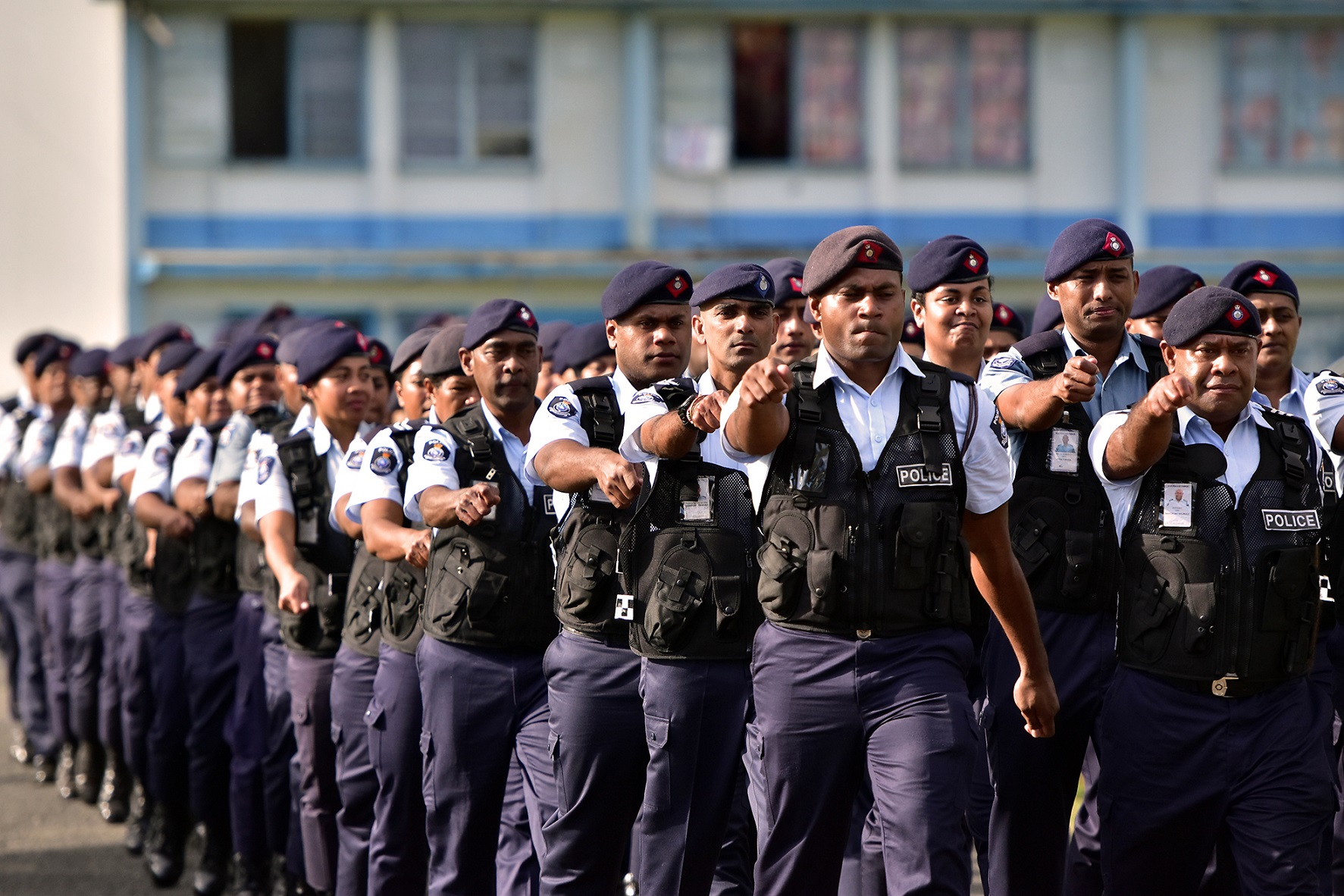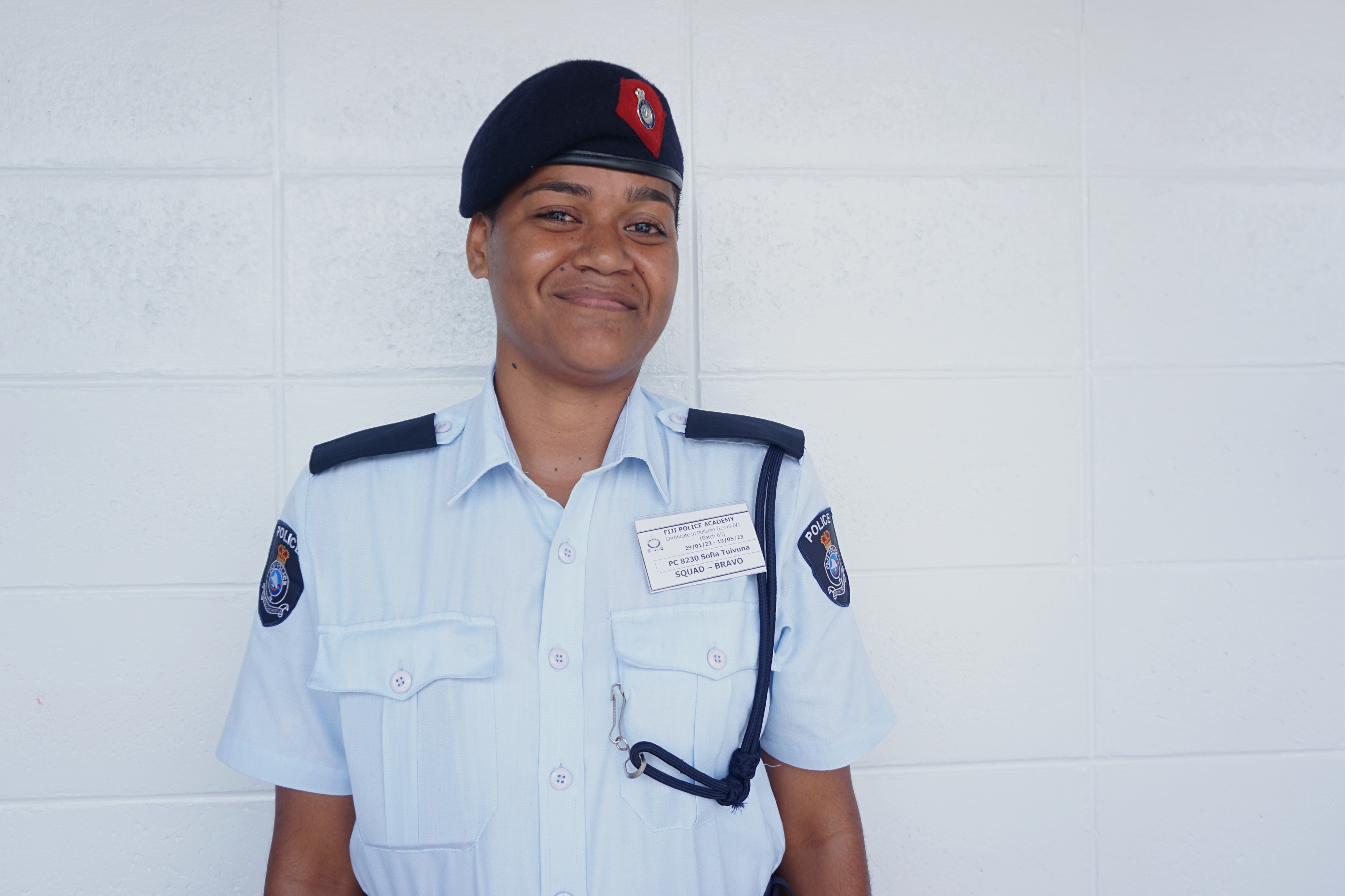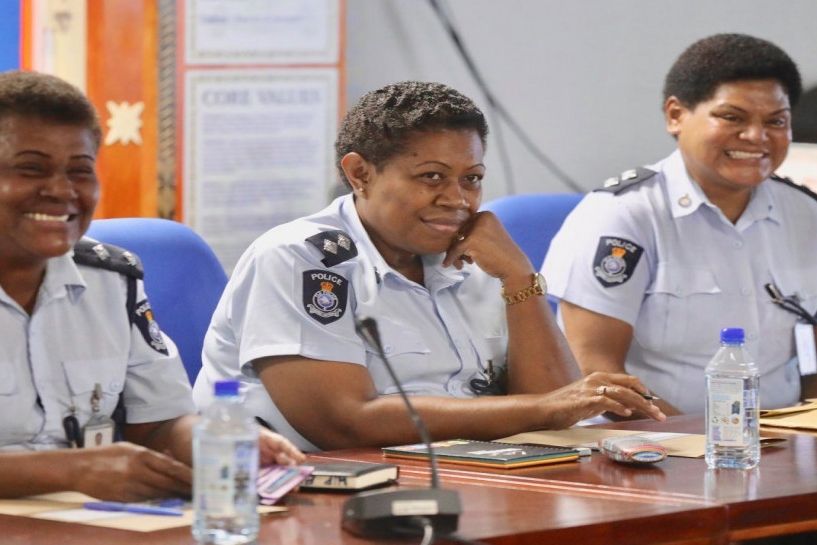Women on the front line: how the Fiji Police Force are working to further women’s representation
March 8, 2023

As a police officer, you possess the unique ability to both safeguard and uplift your community, while also serving as a source of inspiration and empowerment for others. As a woman in law enforcement, you have the added opportunity to shatter gender stereotypes and encourage young girls to pursue their dreams in a field that has historically been dominated by men.
When Salanieta Radaniva courageously joined the Fiji Police Force three decades ago, the idea of women in the force was barely even entertained, with only four percent of the workforce being women. Today, while the percentage of women has improved to around 20 percent, the fight for true gender equality remains a pipe dream.
Women across a variety of workforces are still struggling to break through the glass ceiling and achieve parity in fields where their talents and abilities should be celebrated, not disregarded.
On joining the Fiji Police Force in the early 1990s, Radaniva carries no regrets in having done so.
"It has been a tough road, but it's a profession that is safe and secure, one that I love, and I couldn't be more encouraging of young women and girls who want to join the organization,” she said.
Radaniva's accomplishments are truly remarkable - not only raising seven children but also climbing the ranks to become a Senior Superintendent of Police in the Criminal Investigation Department.
Balancing full-time work and a growing family has not been easy, a feat that would not have been possible without the support of both the Fiji Police Force, and her family.

Salanieta Radaniva
“Without their support and encouragement, I certainly would not have made it to where I am now.”
“It makes me quite emotional just thinking about it, really. It has not been easy, but I have been incredibly lucky to have been part of such an enabling environment to balance my family and career,” Radaniva added.
Research has shown that having a diverse workforce, and including more women in leadership positions, can improve organizational performance and responsiveness to community needs.
While progress has been made, there is still work to be done to ensure that the Fiji Police Force reflects the diversity of the communities it serves. Efforts to create a more representative and inclusive organization should focus on specific strategies, such as targeted recruitment and training, as well as addressing systemic barriers and biases.
By doing so, the Fiji Police Force can become a more effective and trusted institution that serves all members of society.
“With representation continuing to increase, we are creating an environment that is allowing for women and girls contemplating a career in the force to be inspired by women who are out there on the front line.
“For a long time, this wasn’t possible, but now it is,” Radaniva stressed.
‘Balance for Better’
Law enforcement organizations must continuously enhance their capacities and capabilities to effectively combat and prevent domestic crime and security threats.
Research from the Crime Justice Journal in 2020, found that as sexual and domestic violence rates continue to rise, police forces must deploy their most effective assets to prevent and reduce such crimes, in line with UN Sustainable Development Goal 5. Women officers have proven particularly effective in these areas, making their increased recruitment more important than ever.
Ensuring greater gender balance in the Fiji Police Force continues to be a strategic priority. To achieve this, the force is actively implementing measures such as mentoring and leadership development initiatives and reviewing policies and procedures to eliminate any biases that may hinder gender parity.
In addition, the Fiji Police Force have adapted to the challenges presented by the COVID-19 pandemic by leveraging technology and innovative approaches to recruitment, training, and community engagement.
Sofia Tuivuna, who had previously been hesitant about pursuing a career in law enforcement, has joined the Fiji Police Force at the age of 26 and is now undergoing training at the Fiji Police Academy.

Sofia Tuivuna
“Initially, I had reservations about enlisting, but having now started training at the Academy and gaining knowledge about laws and policing techniques, I recognise this as an opportunity to inspire more women to follow suit,” she said.
In the past, women who aspired to join the Fiji Police Force faced opposition from their families and communities.
However, we are witnessing a shift in attitudes, and young women like Tuivuna are now encouraged to pursue their dreams of wearing the blue uniform emblazoned with the Salus Populi motto.
“The best way to serve our people is to reflect the community we serve, and I would encourage any young girl thinking of joining the force to do so.
“The chance to empower a new generation of women and girls, that is what excites me most about joining Fiji Police,” she said.
The Bigger Picture
Despite noticeable progress, women in law enforcement still face many challenges including discrimination, harassment, and a lack of support toward maintaining a suitable work-life balance.
These challenges can make it difficult for women to advance in their careers, this despite research conducted by the United Nations Office on Drugs and Crime (UNODC), UN Women and Interpol finding that law enforcement organizations with more representative workforces benefitted from higher levels of trust from the populations they serve.
Gender norms and biases prevalent in patriarchal societies in the Pacific can complicate women's representation in front line roles. There is a common belief that women lack the physical strength and size required to be effective officers, despite evidence to the contrary.
Additionally, women historically have faced reluctance to pursue a career in law enforcement due to the perception that decision-making is a male-dominated domain. At the global level as well as regionally here in the Pacific, a significant imbalance continues to persist when it comes to women officers and their male colleagues, with women most-often placed in administrative positions instead of in decision-making roles, or on the front line of police operations.
The figures highlight significant gender disparities across law enforcement agencies in the Pacific region. In the Federated States of Micronesia, only eight percent of law enforcement personnel are women, while Vanuatu has slightly better representation with 14 percent. Samoa's figures are slightly higher at 23 percent, while Nauru has the highest representation of women in law enforcement at 38 percent.
These numbers demonstrate the need for greater efforts to promote gender diversity and equality in law enforcement organizations across the region. However, equality is about far more than simply achieving a gender balance. Women should be well represented in all ranks across the force to best meet people’s needs.


Assistant Commissioner of Police, Meli Sateki, strongly advocates for building a diverse and inclusive workforce in law enforcement. He believes that diversity, equity, and inclusivity are essential for enhancing service delivery and building trust with the communities they serve.
“Diverse perspectives bring about a stronger and more effective police force. By increasing women's representation within the Fiji Police Force, we not only promote gender equality but also strengthen our ability to serve and protect all members of the community,” he said.
Radaniva believes that women can be a force for positive change within the organization.
“Women in policing don’t need to be masculine, in fact toning down that masculinity is one of the best assets we can bring,” she said.
UNDP Support
Team Leader - Effective Governance at the United Nations Development Programme (UNDP) Pacific Office in Fiji, Revai Makanje Aalbaek, said it was encouraging to see the Fiji Police Force evolving and innovating to become an organization that best represents the people it serves.
“When law enforcement organizations are seen by the public as representing them, and when authorities are perceived as fair, legitimate, and accountable, this can increase trust and instill confidence,” she said.
The UNDP Pacific Office in Fiji collaborates with the Fiji Police Force through the Fiji Police Support Project. This project, backed by the Government of New Zealand, aims to bolster transparency and accountability within the force, enhance service delivery to reinforce public trust, and equip officers with the skills necessary for upholding the rule of law, respecting human rights, and conducting effective investigations.
In addition, the project tackles the challenge of sexual and gender-based violence (SGBV) by strengthening the capacity of law enforcement officials to investigate cases related to SGBV, domestic violence, and child abuse.
UNDP and its partners – including the Fiji Police Force – aim to contribute to Fiji’s sustainable development. The project has a focus on Sustainable Development Goal 16, which promotes just, peaceful and inclusive societies, and Goal 5, which aims to achieve gender equality and empowerment of all women and girls.

 Locations
Locations



